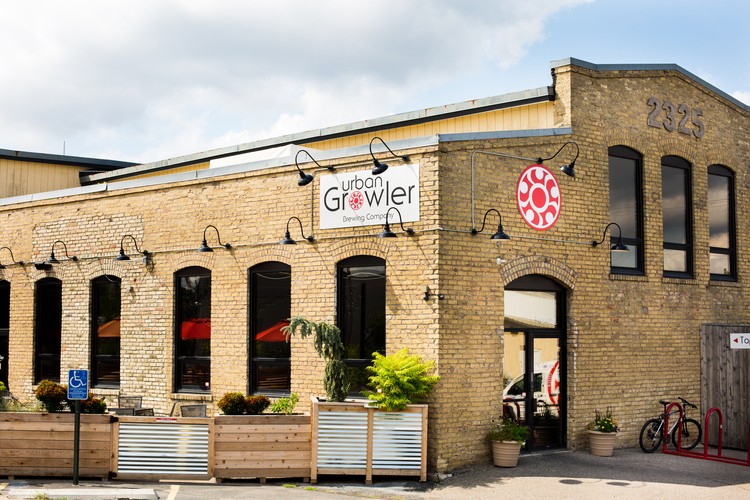After nearly 20 years of researching the Ramón nut, Dave Wilsey and Dean Current had an idea: use the protein-rich Central American seed to brew beer.
He contacted Urban Growler Brewing Co. in St. Paul to set up a partnership last year. Now with a grant from the University of Minnesota’s Institute on the Environment’s mini-grant program, the brewers and conservationists hope the brand-new brew will raise awareness about rainforest conservation efforts.

Two beers that resulted from the collaboration became available for customers in mid-March, and one sold out in a matter of days. The second, a stout with “notes of chocolate, coffee and nuts,” is still available on tap.
“The fact that this nut could bring global change really intrigued me,” said Jill Pavlak, Urban Growler co-owner. “The point of this is to bring awareness to this nut and to help sustainability in communities.”
The Ramón nut is native to Central America, South America and the Caribbean, and has become symbolic of the conservation and development work happening in the Maya Forest, said Wilsey, director of the University’s Master of Development Practice program within the Humphrey School of Public Affairs.
The region is facing deforestation, as large portions of the rainforest are cut down and destroyed to make way for cattle grazing land, Wilsey said. He hopes that encouraging widespread sale of the nut — which only grows in the rainforest — will preserve the rainforest.
Wilsey and his colleague Current have been working with the Ramón nut since the early 2000s. During that time, the University has sent three teams to Guatemala with the Rainforest Alliance to study the nut. Wilsey hopes to organize a brewer exchange in the future and bring Urban Growler workers to Guatemala to teach people there how to brew the beer.
“This partnership will help people learn about opportunities that might exist in forest conservation and livelihood development,” Wilsey said.
The Ramón nut is rich in nutrients like protein and fiber, said Collin Motschke, a graduate student whose master’s thesis is on the Ramón nut. He said he hopes the Ramón nut will become “the quinoa of the future” and a widely-used ingredient around the world.
Wilsey’s ultimate goal is to have a major business use Ramón nut as an ingredient in a food product, creating marketing opportunities that will increase the rainforest’s value and protect its resources.
“There is so much power in being a consumer, and the consumptive decisions that we make have an impact and have ripples throughout the entire world. This is a way that people can be intelligent, compassionate and sustainable consumers,” Motschke said of the partnership.
Pavlak said she explains the partnership to everyone who orders the beer to spread the message.
“The beer is already good, but the story behind it makes people feel even better about ordering it,” she said.
The Ramón nut could start an international conversation about conservation through this beer, Wilsey said.
“We have this belief that we all want the same things from life, to be loved and accepted, and that goes beyond our community. It’s a worldwide desire and right. To be able to make some sort of impact in another country is really quite amazing,” Pavlak said.








